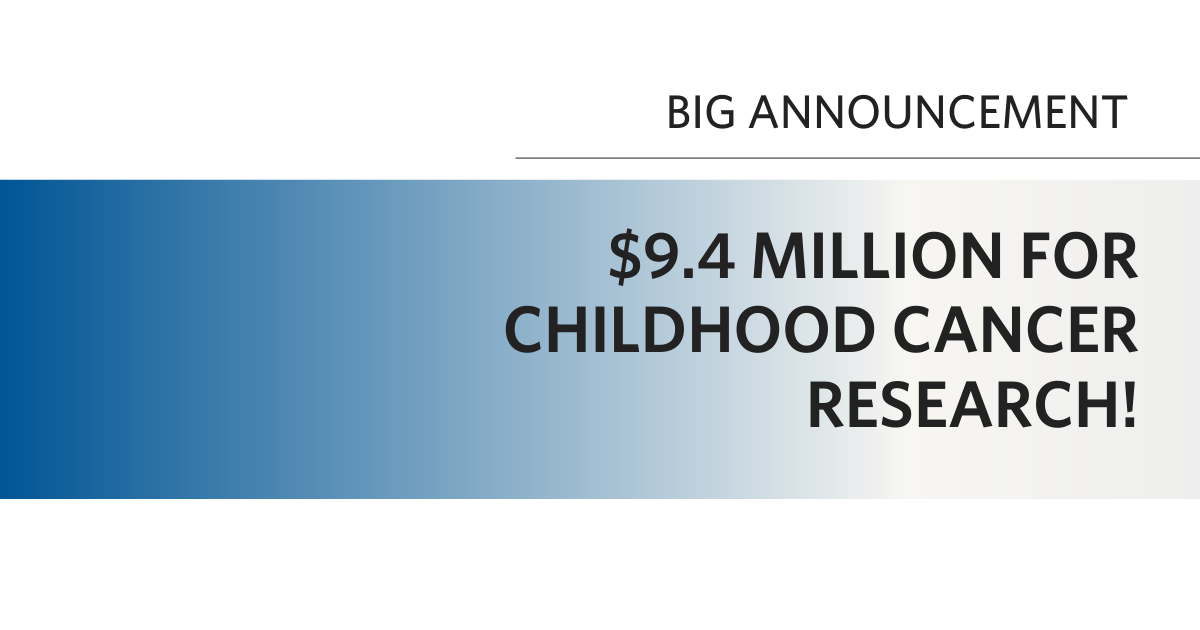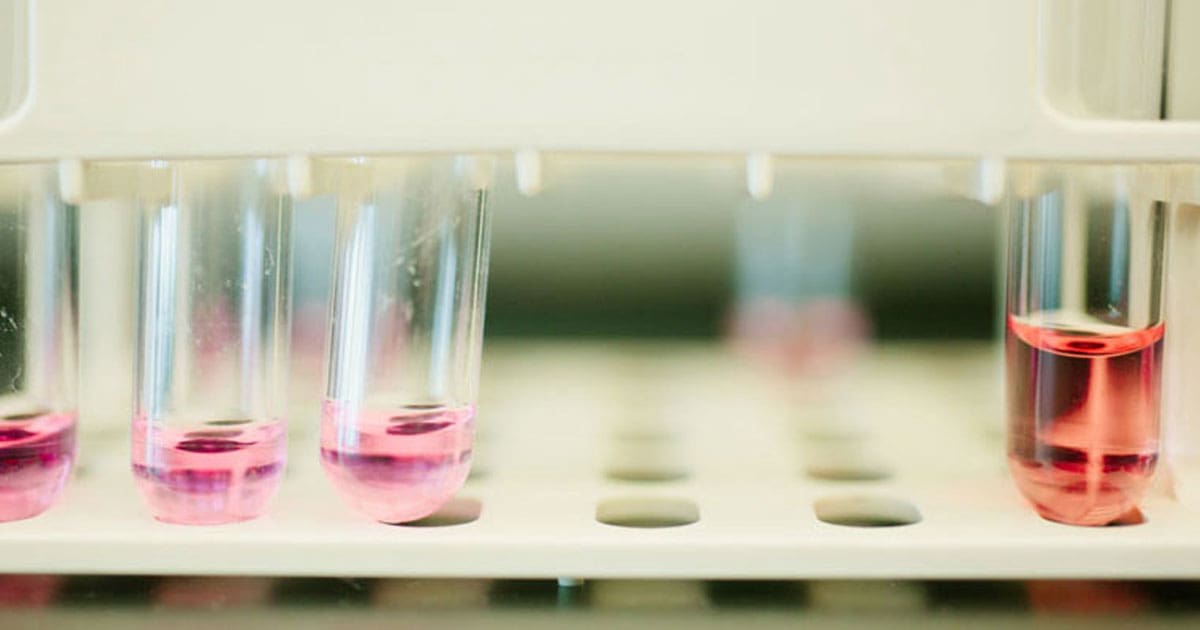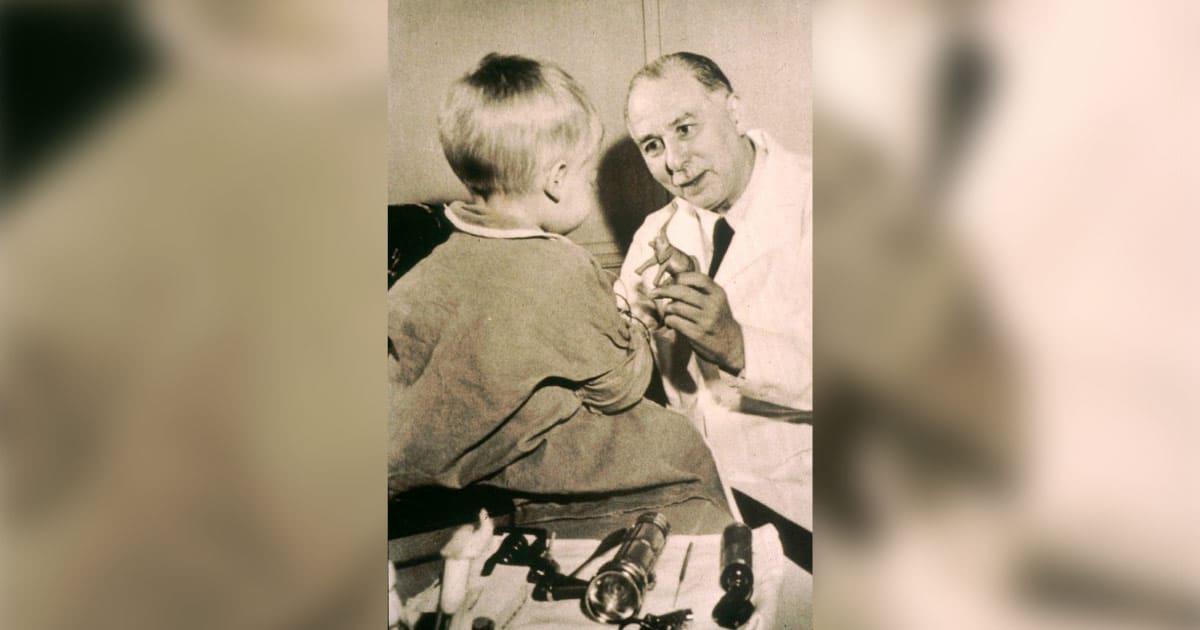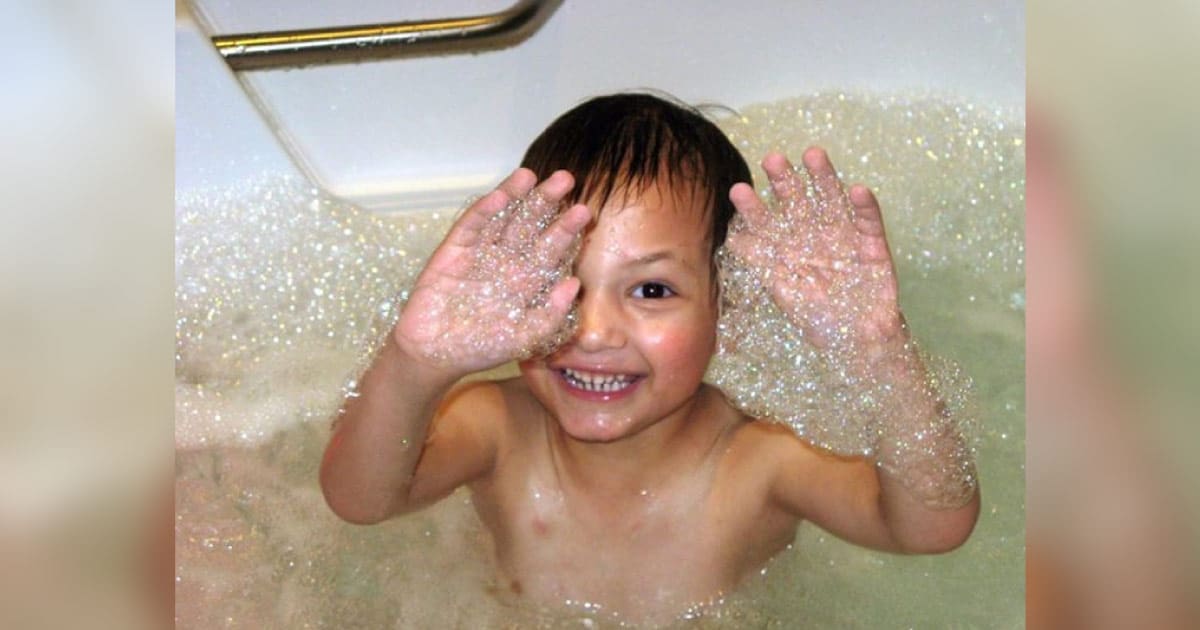We are thrilled to announce the latest round of grants from the St. Baldrick’s Foundation, totaling $9.4 million dollars. This support was made possible by the passion and generosity of donors and dedicated volunteers who work hard to Conquer Kids’ Cancer.
The St. Baldrick’s mission is to support the most promising research aimed at finding cures for childhood cancers and ensuring survivors lead long and healthy lives. These new grants highlight our unwavering commitment to advancing the fight against childhood cancers by funding critical research at every stage of the process.
Research Grants: Fueling Innovations in Childhood Cancer Treatments
We are proud to offer two years of dedicated funding for pioneering research focused on discovering new and better cures for childhood cancers. These 8 new Research Grants are designed to support projects that have the potential to make significant strides in understanding and treating various forms of childhood cancer. By providing sustained funding, we aim to give researchers the resources they need to push the boundaries of medical science and bring hope to children and families affected by cancer.
Carl Allen, M.D., Ph.D., Baylor College of Medicine
Therapies for Langerhans Cell Histiocytosis (LCH): Researchers are testing the combination of chemotherapy and MAPK inhibitor therapy to find safe and effective treatments for LCH, a blood cancer in children that often resists current therapies.
Fange Liu, Ph.D., Perelman School of Medicine, University of Pennsylvania
MLLT10 Fusion Oncoproteins in T-ALL: This research focuses on the role of MLLT10 fusion oncoproteins in T-cell acute lymphoblastic leukemia (T-ALL). By studying how these proteins disrupt cellular functions, researchers aim to develop better treatments for T-ALL.
Anusha Preethi Ganesan, M.D., Ph.D., University of California, San Diego
Combining Immunotherapy and Targeted Therapy for Medulloblastoma: This project investigates why immunotherapy fails in medulloblastoma and tests combined treatments to inhibit tumor growth pathways and boost immune system activity, aiming to improve survival rates in kids with medulloblastoma.
Emily Johnston, M.D., University of Alabama at Birmingham
COVID-19 in Children with Cancer: This study leverages a national registry to understand the clinical course of COVID-19 in children with cancer, the impact of vaccination and antiviral therapy, and factors influencing COVID-19 management. The goal is to develop guidelines for managing these vulnerable patients.
Benjamin Kann, M.D., Brigham and Women’s Hospital
Predicting Risks in Pediatric Brain Tumor Survivors: This project uses AI and medical imaging to predict muscle weakness, malnutrition, and brain development issues in pediatric brain tumor survivors. The goal is to develop tools that can guide treatments to improve survivors’ quality of life.
Gary Kupfer, M.D., Georgetown University’s Lombardi Comprehensive Cancer Center
Fanconi Anemia and Cancer Predisposition: This project examines the role of Fanconi genes in DNA repair and their mutations in head and neck cancers. Researchers aim to understand the interaction and identify ways to target these mutations to improve cancer therapies.
Jun Qi, Ph.D., Dana-Farber Cancer Institute
Novel Therapies for Pediatric Brain Tumors: Dr. Jun Qi’s team is identifying and targeting novel factors in pediatric brain tumors. The study focuses on developing low-toxicity therapies that can effectively inhibit tumor growth and improve patient outcomes.
Mark Rutherford, Ph.D., Washington University School of Medicine in St. Louis
Cisplatin-Induced Hearing Loss: Researchers are testing novel compounds to prevent hearing loss caused by the chemotherapy drug cisplatin. The project aims to find alternatives that protect hearing without inhibiting cisplatin’s cancer-fighting properties.
Christopher Porter, M.D., Emory University
Consortium for Childhood Cancer Predisposition: Cancer is the leading cause of illness-related death in children, with inherited genetic abnormalities playing a significant role. This group aims to improve outcomes for children at high risk by studying tumor risks, biology, and prevention strategies through coordinated efforts across seven institutions. This is the final year of a 5-year consortium research grant project.
Scholar Awards: Empowering Early Career Researchers
Recognizing the importance of nurturing the next generation of scientists, the St. Baldrick’s Foundation is awarding 8 new Scholar Awards to early career professionals. These awards provide three or more years of funding to talented researchers who are embarking on exciting and innovative studies. Without this support, many of these promising individuals might be unable to continue doing pediatric cancer research. The Scholar Awards ensure that these researchers can continue their vital work, driving progress and potentially leading to groundbreaking discoveries in the fight against childhood cancers.
In addition to these 8 new scholars, 5 current scholars received an additional year of funding based on progress.
Lisa Force, M.D., University of Washington
Global Disparities in Childhood Cancer: The project analyzes international data to understand how childhood cancer diagnoses and survival rates differ by sex, age, and region. It aims to identify interventions to reduce disparities and improve outcomes globally.
Wendy Hsiao, M.D., Children’s Hospital Los Angeles
Acute Kidney Injury in ALL Therapy: This study examines the impact of acute kidney injury on survival and the development of chronic kidney disease in children with ALL. It aims to inform screening and treatment practices to mitigate kidney damage in cancer survivors.
Hunter Jonus, Ph.D, Emory University
Allogeneic Cell Therapy for Neuroblastoma: Researchers are developing an advanced T cell therapy to improve the effectiveness of treatments for neuroblastoma. This includes expanding a new type of T cell and engineering them to better recognize and infiltrate tumors.
Yang Li, Ph.D., Washington University School of Medicine in St. Louis
Understanding Diffuse Midline Glioma (DMG): This project seeks to map the genetic and epigenetic landscape of DMG using single-cell analyses and AI. The goal is to identify new targets for therapy and improve treatment outcomes for this deadly childhood tumor.
Rui Su, Ph.D., Beckman Research Institute of City of Hope
Targeting Leukemia Stem Cells in acute myeloid leukemia (AML): The project focuses on blocking the enzyme METTL1 to eliminate leukemia stem cells in AML. Researchers aim to develop a METTL1 inhibitor as a potential treatment to improve outcomes for AML patients.
Palaniraja Thandapani, Ph.D., University of Texas MD Anderson Cancer Center
Nutrient Deprivation in Treating T-ALL: Researchers are exploring a new therapeutic approach for T-ALL based on the finding that these cancer cells require high levels of the nutrient valine. The project investigates different strategies to exploit this vulnerability.
Meng Wang, M.D., Ph.D., Cornell University College of Agriculture and Life Sciences
Formaldehyde-Induced DNA Damage in Childhood Cancers: Researchers aim to understand how formaldehyde, a natural toxin produced by the body, causes DNA damage leading to aggressive childhood blood cancers. The goal is to identify at-risk children and develop strategies to alter formaldehyde production.
Daniel Zheng, M.D., Children’s Hospital of Philadelphia
Financial Toxicity in AML Treatment: This study explores the financial burden on families of children undergoing AML treatment. Researchers aim to identify work arrangements and policies that could support these families, ultimately advocating for accommodations to reduce financial stress.
The St. Baldrick’s Foundation is proud to fund more in childhood cancer research grants than any other charity in the U.S. From ideas in the lab to clinical trials that offer hope for a cure, these grants make every stage of the research process possible. We believe that through sustained investment in cutting-edge research, we can make significant advances toward curing childhood cancers and improving the quality of life for survivors.
Join us in our mission to support the brightest minds in cancer research and to give children with cancer the future they deserve.
Let’s continue to fight childhood cancer, one grant at a time.
Donate



